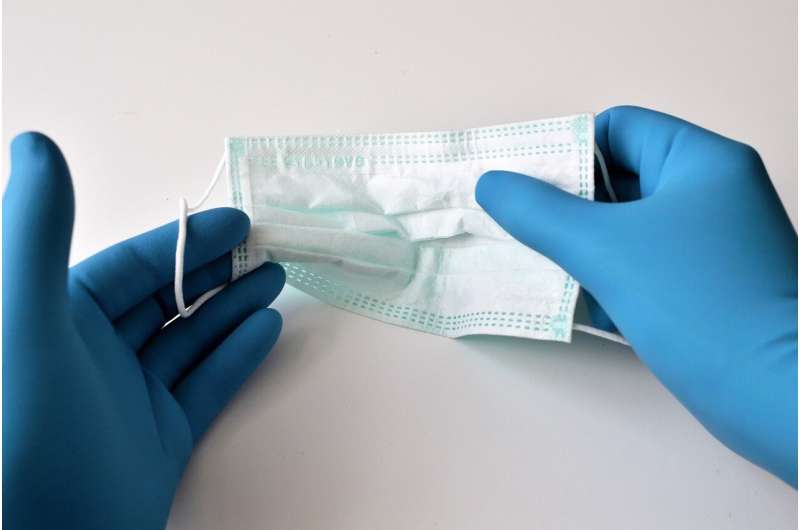Credit: CC0 Public Domain
As COVID-19 cases continue to rise, elected leaders, public health officials and virus survivors who contracted the virus early and after longs, painful treatments, are now in recovery are speaking up about what others can do to keep safe—and plan ahead.
When the pandemic hit in March, Lynus Parker, for instance, thought he was mostly safe and not at much risk for infection. At 57, he was young and fit and he mostly worked from home.
But, he still caught the virus—which put him in hospitals for three months—and he and his wife, Kirsten, are now telling their story in hopes of helping others to avoid their ordeal.
Wearing a mask and washing your hands can prevent the spread of the virus. But, you also should set up set up automatic bill pay in case you are suddenly hospitalized for a long time and sedated, discuss end-of-life instructions with you family and have a will.
On Friday, Gov. Gretchen Whitmer continued to urge Michiganders to wear masks and announced a plan to provide more than 4 million of them to people who need them.
The first two confirmed COVID-19 cases in Michigan were reported March 10, the first death on March 19. The number of cases and deaths steadily increased, then began to fall, but has been increasing—again.
"Youth will not protect you from this virus," Whitmer warned. "Your political affiliation will not protect you from this virus. And this virus will not go away just because we're tired of dealing with it."
The only way the pandemic can be stopped, she said, is for all of us to do our part.
Here's hat the experts urge:
- Wear a mask. Despite initial messages that said cloth masks wouldn't help, health officials now say they do. CDC Director Dr. Robert R. Redfield called face coverings "one of the most powerful weapons we have" to stop virus.
- Keep your distance. When an infected person coughs, sneezes, or talks, droplets are launched into the air. Staying a safe distance keeps the virus at bay. What's a safe distance? Six feet, about two arm-lengths.
- Wash your hands. It may be possible to get COVID-19 by touching a surface with the virus on it and then touching you mouth or nose. The virus can live for days on some surfaces. Hand washing with soap and water for at least 20 seconds helps.
- Stay home. Follow state, local, and territorial travel restrictions. Traveling increases your chances of getting and spreading COVID-19. Airports, bus stations, train stations, and rest stops are places where the virus lingers on surfaces.
- Gather important documents. Prepare a list of all the medications you take. Gather important records and paperwork: Health records, financial records, and other documents someone you trust might need if you are hospitalized.
- Set up automatic bill pay. You might be in the hospital for a while, and you can avoid a hassles if you have auto pay your utilities, loans and other reoccurring expenses. Otherwise you may need to reconnect shutoffs or pay late fines.
- Give advanced directives. Write down your wishes for medical treatment. Prepare a living wills and set up medical power of attorney. In an emergency, are there limits to the life sustaining treatment you want? Who do you want to make decisions for you?
- Have discussions with your family. It may be hard to think—and talk—about death. But, the Parkers, who nearly faced it, said it helped that they had conversations in advance about it.
Hospitalization was difficult enough for both of them, but fortunately, they said, they already had discussed some questions, and those conversations were not something they had to try to have.
(c)2020 Detroit Free Press
Distributed by Tribune Content Agency, LLC.
























